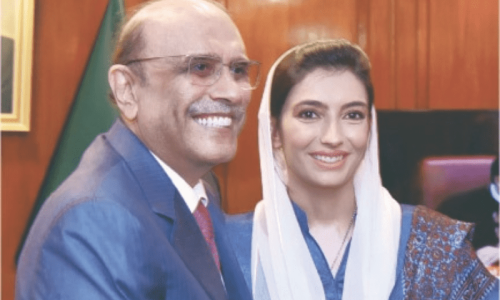ISLAMABAD: The Joint Action Committee (JAC) of stakeholders has asked that the Prevention of Electronic Crimes Bill (PECB) 2015 be reconsidered by the National Assembly Standing Committee on Information Technology.
The new cybercrime bill was approved by the chair of the committee last week, in the absence of most opposition members who had objected to definitions and some clauses of the bill, which is now property of the National Assembly and awaits further debate on the floor of the house.
Read: ‘Flawed’ cybercrime bill approved
PTI MNA Dr Arif Alvi has already made this demand in the ongoing session of the National Assembly, saying that the bill had flaws and should be sent back to the standing committee for further scrutiny. However, the National Assembly speaker responded that a decision could only be taken once the PECB 2015 was laid before the house.
At an open house discussion, held at Kuch Khaas on Thursday, speakers voiced their apprehensions regarding the bill, saying that when the bill was approved, 14 PML-N members and only one of six opposition members were present in the committee. But this did not stop retired Capt Mohammad Safdar from approving the bill on behalf of all 20 members.
Also read: New cybercrime bill tough on individuals’ rights, soft on crime
“The bill needs to go back to committee. We fear that the bill may be passed without being discussed on the floor of the Assembly. We can push for amendments once its back with the committee,” said Farieha Aziz, who is a director at Bolo Bhi, an advocacy organisation focusing on Internet policy.
Joint Action Committee pushes for exclusion of ‘excessive clauses’
Ms Aziz got straight to the point on how certain clauses must be omitted. Section 15, which deals with ‘Unauthorized issuance of SIM cards’ should be addressed in telecom laws, she said, adding that “There are already laws against defamation and this is why Section 18, which deals with ‘Offences against dignity of natural person’ should also be omitted”.
Most speakers from the JAC, which consists of Internet service providers, IT companies and entrepreneurs among others, particularly wanted Section 34, which deals with powers to manage intelligence and block content, omitted from the new cybercrime bill. They were unanimous that the new bill was contrary to the basic freedom of expression enshrined in the Constitution. The speakers said Section 34 gave unfettered powers to the Pakistan Telecommunication Authority (PTA).
Also read: Human Rights Watch, others declare cyber crime bill ‘undemocratic’
“We saw in the past how the authority blocked YouTube completely because it was not possible to block specific content. This law gives PTA the authority to block websites it decides are vulgar or obscene,” said Ms Aziz, explaining how, ideally, there should be public debate on each and every clause of the bill.
Speakers felt that sections 10 and 22 on Cyber-terrorism and Spamming, respectively, also deprived citizens of their civil liberties.
One of the panelists, Aftab Alam, who is a lawyer specialising in media law, said that he believed that the intent of the cybercrime bill was to curb things further, not to free them up.
“Making amendments to the government’s bill will be playing on their pitch and will mean the bill will remain flawed. Starting with definitions to certain sections, every line is problematic,” Mr Alam said as he compared the cybercrime bill to the Official Secrets Act of 1923, which restricted access to information.
He argued that the bill curbed all kinds of criticism on social media, which was where most debate took place and said that the bill would present a serious challenge to advocates promoting freedom of speech.
Yaseer Latif Hamdani, the lawyer who represented Bytes For All in the YouTube case, explained how the government’s approach to fighting terrorism was problematic.
“We all have faith that government will win the war on terror, but while the National Action Plan and terrorism are temporary, people will always be plagued by this law, which will remain permanent,” he argued.
Debunking the government’s stance, Pakistan Software Houses Association (PASHA) for Executive Member IT Syed Ahmad said that the Ministry of Information Technology had not incorporated stakeholders’ concerns.
“The bill, in its present form, does not achieve the goal of defeating terrorism and is not in compliance with the Budapest Convention at multiple levels,” he said.
If the bill is passed, he argued, the government would not be able to claim data from companies that own social media websites, such as Facebook and Twitter, where most anti-state and hate material is proliferated.
Published in Dawn, April 24th, 2015
On a mobile phone? Get the Dawn Mobile App: Apple Store | Google Play














































